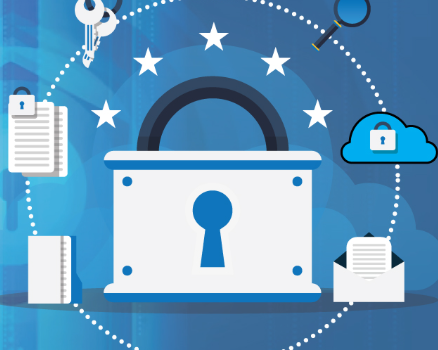
With data breaches on the rise, protecting sensitive information has become an urgent priority for businesses and individuals alike. As companies increasingly rely on digital platforms to store and manage data, cybercriminals have more opportunities to exploit vulnerabilities. In 2023 alone, over 2,000 data breaches affected millions of people, highlighting the growing risks associated with digital information storage and sharing.
Data privacy and information security are now critical components of every business operation. This blog explores why they are so important and provides strategies that organizations can adopt to enhance data protection and ensure compliance with privacy regulations.
What is Data Privacy?
Data privacy refers to the proper management of sensitive information to ensure that it is collected, stored, and shared in compliance with legal and regulatory standards. It protects the confidentiality and integrity of data, especially personal and financial information. Companies are required to handle customer data responsibly, safeguarding it from unauthorized access or misuse.
Some of the most sensitive data that companies need to protect includes:
- Customer demographic information
- Financial records
- Intellectual property
- Social media data
Data privacy involves a variety of practices, including data governance, internal policies, and adherence to legal frameworks like the General Data Protection Regulation (GDPR) and the California Consumer Privacy Act (CCPA).
The Consequences of Data Breaches
When a data breach occurs, the impact can be severe for both individuals and organizations. Victims may experience identity theft, financial losses, and damage to their credit scores if their personal data, such as Social Security numbers or bank account details, is exposed.
For businesses, the consequences can be far-reaching. In addition to financial losses, a breach can damage customer trust and tarnish a company’s reputation. This can lead to lost business and even legal consequences. In 2023, Meta was fined $1.3 billion for violating European Union data privacy regulations.
Data Privacy Regulations and Compliance
There are various laws that govern data privacy, each with its own requirements. Some of the key regulations include:
- General Data Protection Regulation (GDPR): This regulation governs data privacy within the European Union and mandates transparency in data collection, along with strict security measures.
- California Consumer Privacy Act (CCPA): This law gives California residents the right to know how their data is used and the ability to opt out of data collection.
- Health Insurance Portability and Accountability Act (HIPAA): This act protects medical records and ensures that healthcare organizations maintain patient confidentiality.
Companies must understand and comply with these regulations to avoid legal consequences and maintain customer trust.
Information Security Best Practices
Information security involves safeguarding data from unauthorized access, destruction, or modification. The National Institute of Standards and Technology (NIST) defines information security as protecting the confidentiality, integrity, and availability of information.
Key practices for ensuring information security include:
- Data Encryption: Encrypt sensitive data both during storage and transit to prevent unauthorized access.
- Limit Data Access: Restrict access to sensitive information to authorized personnel only.
- Risk Assessments: Regularly assess the security of third-party vendors and internal systems to identify vulnerabilities.
Strategies for Data Protection
As cyber threats evolve, businesses need to implement effective strategies to protect sensitive data. Below are several approaches that organizations can adopt to ensure data privacy and security:
Secure Data Storage and Cloud Services
Cloud storage has become a popular solution for businesses, but it also presents security risks. To protect cloud data, businesses should:
- Regularly audit cloud storage and delete unnecessary data.
- Use encryption for less frequently accessed data.
- Choose cloud providers with strong security features like multi-factor authentication.
Managing Third-Party Risks
Third-party vendors may require access to company data. To minimize risks, businesses should conduct thorough assessments of their partners’ security practices and establish clear data-sharing policies.
Privacy by Design Principles
Privacy by design is an approach that integrates data protection measures into the development of products and systems from the outset. This approach ensures that privacy and security are not just add-ons but core components of the design process.
Conduct Privacy Impact Assessments
A Privacy Impact Assessment (PIA) helps businesses assess the risks of new projects or systems that could affect personal data. By identifying potential vulnerabilities early on, organizations can mitigate risks before they become significant problems.
Implement Data Retention and Deletion Policies
Data retention policies help businesses manage the amount of data they store. By setting clear timelines for data storage and securely deleting unnecessary data, organizations can reduce the risk of data breaches.
Continuous Monitoring and Auditing
Regular monitoring and auditing of data systems are essential for identifying any signs of unauthorized access or other security issues. Businesses should conduct routine security assessments to ensure that their data protection measures remain effective.
The Role of Data Protection Officers
Data Protection Officers (DPOs) play a critical role in ensuring that organizations comply with data protection laws. They oversee data security practices, educate employees on best practices, and coordinate responses to potential breaches.
Ethical Considerations in Data Privacy
Data privacy is not just a legal issue—it’s also an ethical one. Professionals in the field of data science and IT security must adhere to ethical guidelines that prioritize transparency, accountability, and the protection of individuals’ privacy. Businesses must ensure that their data practices respect the privacy of individuals and that they are held accountable for any lapses in data security.
Conclusion
Data privacy and information security are essential components of modern business operations. As cyber threats continue to grow, companies must adopt comprehensive strategies to protect sensitive data and comply with regulations. By implementing best practices in data encryption, access management, and privacy by design, businesses can safeguard valuable information and maintain trust with their customers.












